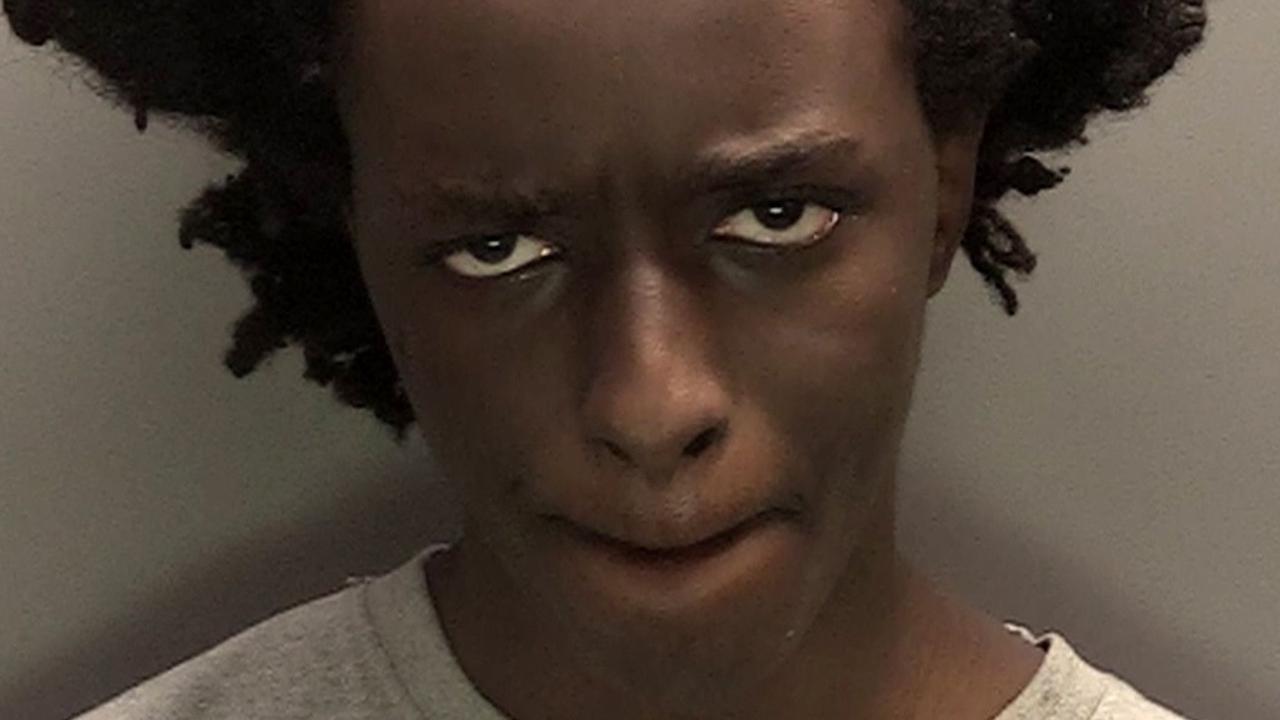WikiLeaks’ Julian Assange legal war heats up
Julian Assange’s lawyers are preparing to fight his potential extradition to the US, saying his arrest set a dangerous precedent.
Crime in Focus
Don't miss out on the headlines from Crime in Focus. Followed categories will be added to My News.
Julian Assange’s lawyers are preparing to fight his potential extradition to the US, saying his arrest set a dangerous precedent.
Assange’s lawyer, Australian Jennifer Robinson, said it was a ‘dark day for journalism’ as she spoke to media outside the Westminster Magistrates Court where the WikiLeaks founder appeared hours earlier after being arrested at the Ecuadorean Embassy.
Assange was arrested for skipping bail on July 29, 2012 and on a US extradition warrant for allegedly conspiring with whistleblower Chelsea Manning to leak classified American military documents.
The US indictment against Assange alleges between January and May 2010, Manning provided WikiLeaks with four ‘nearly complete databases from departments and agencies of the United States”.
Those databases were said to contain 90,000 Afghanistan war-related reports, 40,000 Iraq war-
related reports 800 Guantánamo Bay detainee assessment briefs and 250,000 US Department of State cables, according to the indictment.
Assange will appear in court on May where the US will begin its bid to have him extradited to face trial.
MORE ON ASSANGE:
How Assange became a global wrecking ball
Assange’s ‘diva demands’ shocked embassy staff
Analysis: Assange’s fatal mistake
PM on Assange: 'There is no special treatment'
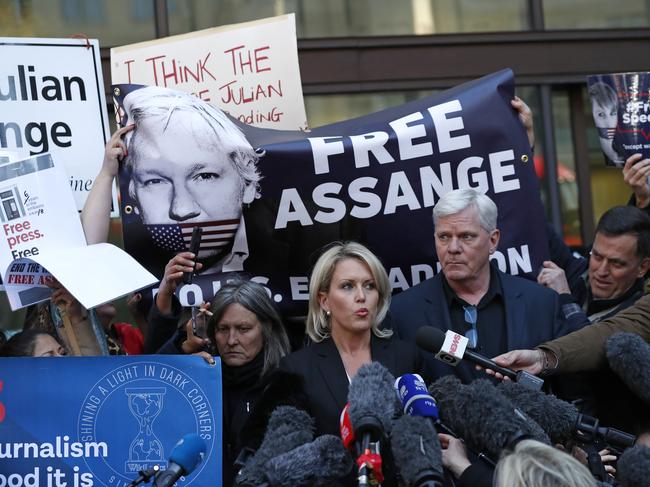
“This sets a dangerous precedent for all media organisations and journalists in Europe and
elsewhere around the world,’’ Ms Robinson said.
“The precedent means that any journalist can be extradited for prosecution in the United States for having published truthful information about the United States.”
She said she had met with Assange in his cell following the hearing and he thanked his supporters and said, ‘I told you so’.
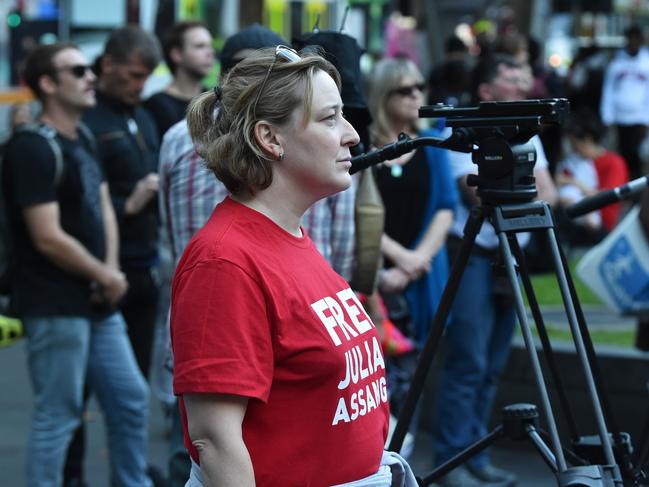
“We will be contesting and fighting extradition," Ms Robinson said.
WikiLeaks editor-in-chief Kristinn Hrafnsson told the media there was ‘no assurance’ additional charges wouldn’t be laid against Assange when he was on US soil.
“We don’t want this to go forward, this has to be averted,” he said.
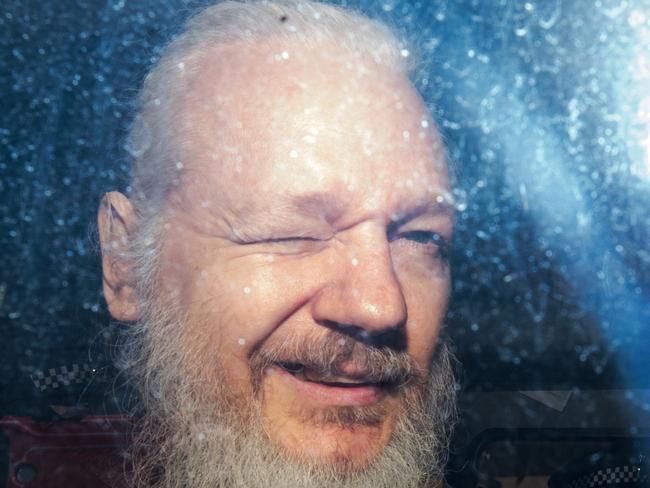
“The UK government needs to make a full assurance that a journalist will never be extradited to the United States for publishing activity.
“This pertains to publishing work nine years ago, the publishing of documents, of videos of the killing of innocent civilians, the exposure of war crimes.”
Assange is currently facing charges of computer intrusion, and is not facing charges relating to
publishing, potentially heading off a freedom of speech row.
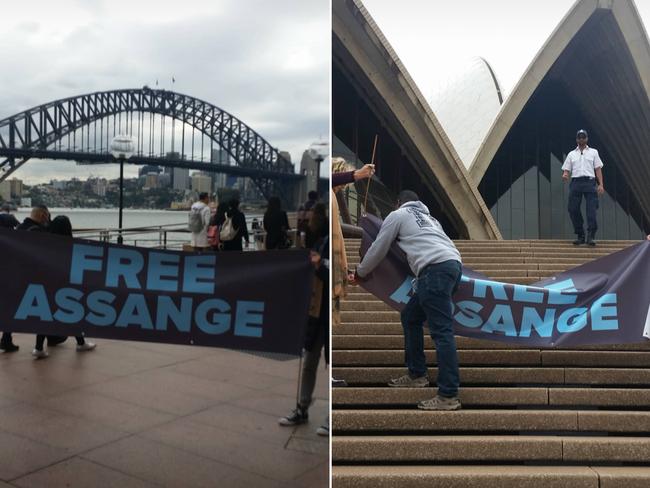
Christine Forz has been to several vigils for Assange and stood in a crowd of supporters outside court.
Her sign read, ‘I think the fate of Julian Assange is pending on international solidarity’.
She told News Corp Australia while his expulsion from the Ecuadorean Embassy and his subsequent arrest wasn’t a shock, ‘the shock was how it happened’.
“Maybe if we shout loud enough, something will break through,” she said.
Ms Forz said some supporters would return to the embassy overnight to maintain a presence and begin creating a shrine.
Originally published as WikiLeaks’ Julian Assange legal war heats up

